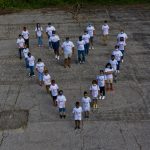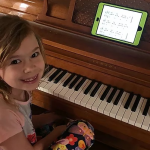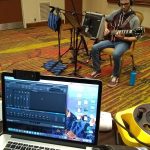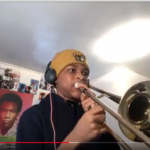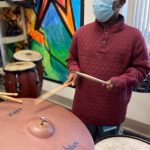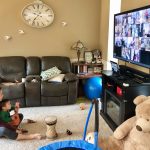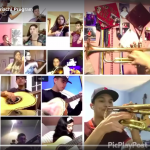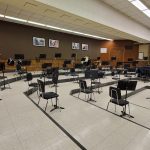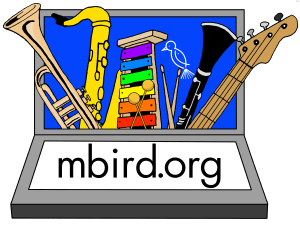The Mockingbird Foundation, an all-volunteer nonprofit founded and run entirely by Phish fans, has given twenty-five (25) unsolicited grants totaling $105,000 to improve access to music education for America’s youth since June 2020. This is part of Mockingbird’s COVID-19 Relief emergency campaign. These grants bring the total disbursements by the Foundation to more than $1.7M.
The COVID-19 Relief fundraising effort began at the end of May when $25,000 was allocated from existing funds to launch this effort. We sought to raise $25,000 in additional giving, which we pledged to match, totaling $75,000. Collective donations were double that goal, so the total amount given now exceeds $100,000.
These newest grants support the following programs at schools, centers, and non-profit organizations across 20 states:
- $5,000 for helping organize the response in New Orleans, one of the hardest-hit cities in the United States by the pandemic, and to support artist and clinician opportunities for students to Artists Corps (New Orleans, LA)
- $5,000 for new expenses for acquiring the necessary technology to ensure that their students experience the highest technical quality instruction from their Teaching Artists, who are paid, local, professional, degreed musicians and music educators to Atlanta Music Project (Atlanta, GA)
- $500 for equipment necessary for its 700 students to receive as close as possible to in-person sound quality and a life-like view of their music teacher in virtual environments to Baucom Elementary School (Apex, NC)
- $5,000 for take-home tool-kits for its Baltimore after-school program; the kits will include the instruments and technology necessary for kids to participate in both synchronous and asynchronous learning to Beyond the Natural (Baltimore, MD)
- $5,000 for support a free version of its widely adopted Music and the Brain in-school curriculum, which they seek to improve considerably with the help of their grant to Building for the Arts (New York, NY)
- $2,000 for the cost of professional videographers to record and edit their string and wind quintet programs over the course of four sessions, recordings that will then be used in their virtual learning programs to Chattanooga Symphony & Opera (Chattanooga, TN)
- $5,000 for their all-new entirely digital learning platform, which they expect will continue to be an important part of their services even normalcy returns to Denver Children’s Choir (Denver, CO)
- $5,000 for virtual programming through at least the end of 2020, received to invest in content production and instruments for home participation by their students with Down Syndrome to GiGi’s Playhouse (Little Rock, AR)
- $5,000 for their summer camp to continue virtually after they lost the ability to host in-person fundraising events throughout the spring to Girls Rock Detroit (Detroit, MI)
- $5,000 for Phase II of its completely virtual American Indigenous Music Project to Global Z Recording (Urbana, MD)
- $5,000 for fully online instruction for its 500 students to Harmony Program (New York, NY)
- $5,000 for technological investments and additional instruments to take their instruction online so participants can access remotely to Harmony, Hope, and Healing (Chicago, IL)
- $5,000 for support of their music education program for Navajo (Diné) children living in the Navajo Nation, which suffered COVID-19 related illnesses and deaths disproportionately to other regions, to Heartbeat Music Project (Crown Point, NM)
- $5,000 for their “Out-of-School Time” virtual programming this fall, which includes new opportunities that are all uniquely suited for the online environment, to Jazz House Kids (Montclair, NJ)
- $5,000 for one-on-one virtual instruction through instrument lending, advanced technology, and an interactive copyrighted Distance Learning Braille Music curriculum that is in global demand to Lighthouse Music Program for the Blind and Visually Impaired (Miami, FL)
- $2,500 for installation of a new hard-wired network to accelerate its capacity to efficiently host its critically important ensemble programs that require real-time collaboration. to Music Center Northwest (Seattle, WA)
- $5,000 for Adaptive Music Program, intended to fluidly respond to changes in attendance requirements caused by COVID-19, in 951 classrooms at 67 schools across Silicon Valley to Music for Minors (San Carlos, CA)
- $5,000 for improvements to the rich and varied music education programming now happening virtually twice a week to Open Tone Music (Akron, OH)
- $5,000 for providing virtual music instruction by ensuring that South Central Los Angeles students have the technology and materials to access the classes to A Place Called Home (Los Angeles, CA)
- $5,000 for its Virtual Camp Rocks (VCR) program from this summer to be adapted to a hybrid after-school program with help from their grant. to Rock and Roll Camp for Girls (Portland, OR)
- $5,000 for a contactless instrument loan program to facilitate at-home learning and to further support programs originally developed to complement local schools’ hybrid schedule to Rock to the Future (Philadelphia, PA)
- $1,000 for its exemplary response to the circumstances required to keep schools safe, highlighted by a viral video it released of its Zoom practice at the end of the last school year. to Roma Independent School District Mariachi (Roma, TX)
- $5,000 for effective virtual programs that will keep their 500 students engaged in their education despite distancing to Rosie’s House (Phoenix, AZ)
- $1,000 for acoustic guitars and electronic keyboards for students to take home during virtual learning and to supplement their ensemble instruction when school returns to normal. to South High Community School (Worcester, MA)
- $3,000 for transition of its instruction to be centered more around percussion to promote social distancing, as COVID-19 makes wind and voice ensembles less safe to Washington Middle School Music Department (Kenosha, WI)
These grantees were selected according to different criteria to review previous applicants and grantees, including from our 25th Round, the application period for which concluded on August 1st, that included specific questions pertinent to program responses to COVID-19. In addition, we researched outside our customary channels for organizations that were creatively providing – or seeking funds to provide – musical education to students in this time of unprecedented challenges.
Hundreds of individual donations were made through our fundraising channels over the summer. Many of the donations were exceptional and substantial from new donors and long-time donors as well. Among the donations, sadly, were numerous tributes to family members and friends lost to COVID-19.
We expect that the response to the pandemic will continue throughout the next year or more, and our application process will certainly reflect that. While this may conclude giving aimed specifically to the immediate response, we will remain tuned long-term to the needs of schools and programs as they continue to respond to the upheaval caused by COVID-19.
We hope that you will consider making a tax-deductible donation through the Foundation’s website at www.mbird.org so that we can continue to provide emergency grants like COVID-19 Relief and increase the percentage of annual applicants whom we are ultimately able to fund.
The Mockingbird Foundation has been operated entirely by volunteer fans of the band Phish, with no salaries or paid staff, since its inception. A leading grantmaker in music education for children, the Foundation has now made 475 grants, in all 50 states, totaling $1,728,786.40. Also, Mockingbird is now a leading provider of historical information about the band Phish and its music, having cultivated intellectual property through www.phish.net since 1994. Proceeds are generated by celebrating the music of Phish through books, recordings, art, donations, and special events, including poster exhibitions, poker tournaments, and golf tournaments.
For more information about Phish, see the official Phish.com or Mockingbird’s own fan-run Phish.net.
- Artists Corps Music Education Director with musician and educator Ellis Marsalis, who passed away on April 1, 2020. following battle with COVID-19.
- Students of Beyond the Natural
- Building for the Arts students at home with their Music and the Brain curriculum.
- Global Z Recording student preparing to record.
- Trombonist from the award-winning Jazz House Big Band takes a solo during virtual concert in May 2020
- Lighthouse Music Program student.
- Music Center Northwest parent and student in Zoom class.
- Roma ISD Varsity Mariachi released its first “Practice at Home” video on March 25, 2020.
- Empty Washington Middle School band hall prepared for social distancing.
Original art by Josean Riviera.


